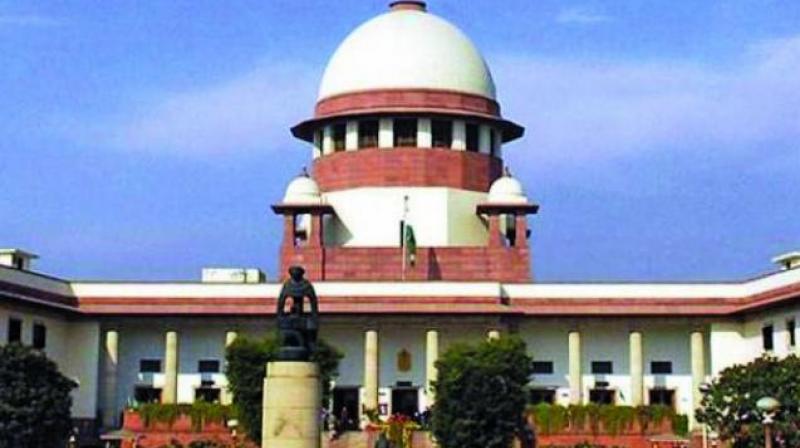Supreme Court tweaks rules on bail hearings

New Delhi: The Supreme Court has amended its rule-making provision for a single-judge bench hearing matters relating to bail, anticipatory bail, matters arising from the special powers of the high court or session court regarding bail and the transfer of criminal cases and civil suits.
The amended rules would come into force from the date of their publication in the official gazette.
The notification issued by the top court said that a bench of single judge would hear and finally dispose of the cases involving bail, anticipatory bail, application for anticipatory bail in the matters arising from the orders passed by the high courts or subordinate courts under Section 437, 438 and 439 of the Code of Criminal Procedure involving the offences punishable with seven years imprisonment.
The judge sitting singly would also hear transfer cases under Section 406 of the
CrPC and Section 25 of the Code of Civil Procedure.
The Supreme Court Bar Association (SCBA) has expressed “shock” over the amended rules paving way for creation of single-judge benches for hearing bail, anticipatory bail and transfer of cases.
Seeking the recall (withdrawal) of the amended rules, the SCBA in a resolution passed on Friday said that they were not consulted before incorporating the new rules.
The apex body of the lawyers have requested the Chief Justice Ranjan Gogoi to recall the amended rules creating single judge benches to hear matters relating to bail, anticipatory bail and transfer of cases.
Section 437 provides for when bail may be taken in case of non-bailable offence, Section 438 provides for issuance of directions for grant of bail to person apprehending arrest and Section 439 deals with the matters arising from the special powers of the high court or session court regarding bail.
“In exercise of the powers conferred by Article 145 of the Constitution and with the approval of the President, the Supreme Court hereby makes following rules further to amend the Supreme Court Rules, 2013,” a notification issued by the top court said.
The rules may be called the Supreme Court (Amendment) Rules, 2019.
Article 145 of the constitution says, “145. (1) Subject to the provisions of any law made by Parliament, the Supreme Court may from time to time, with the approval of the President, make rules for regulating generally the practice and procedure of the Court …”
Application for transfer of cases under Section 406 of the Code of Criminal Procedure and Section 25 of the Code of Civil Procedure empowers the top court to transfer cases and appeals including suits pending before the High Courts or the subordinate courts.

